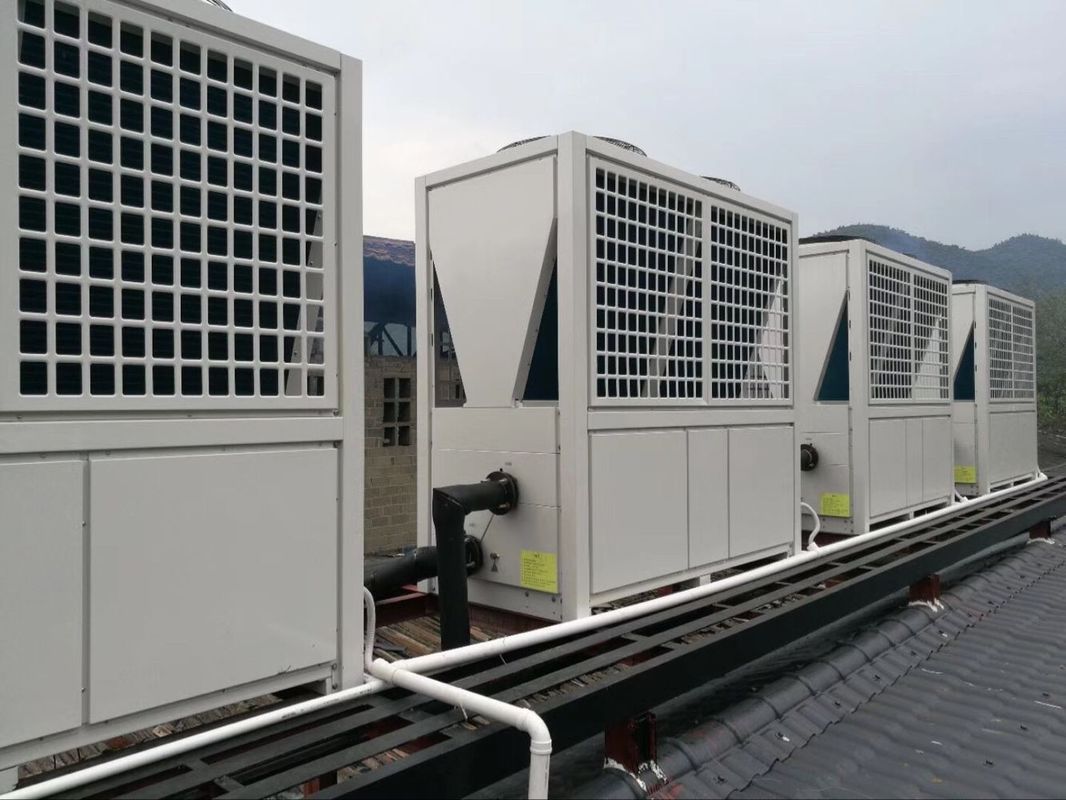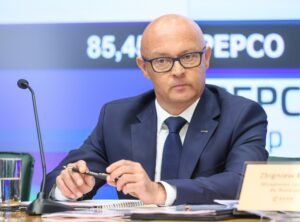„The new requirements for the qualification of heat pumps for the Clean Air Program may negatively affect new, very large investments planned in Poland by the tycoons of the European heat pump market. Blocking European quality marks through an unfair campaign is problematic and can have serious consequences at the level of the European Commission, potentially leading to an international scandal, Paweł Lachman, President of the PORT PC Management Board explained to BiznesAlert.pl.
- As part of the Clean Air Program, which aims to improve air quality and promote green investments, a list of Green Equipment and Materials (aka ZUM) has been created. This is a key tool to help applicants choose the products eligible for funding.
- However, the new rules for qualifying heat pumps for the ZUM list raise serious concerns among many manufacturers of these devices as well as investors. The changes that have just taken place and those that are to be introduced from early next year are already having a negative impact on the Polish heat pump market and may hamper future investments.
- Currently, the largest investors in the development of heat pump production in Poland are large international companies that use recognized European quality certificates in all European countries. They have been present in Poland for years, they have extensive networks offering client services and well-recognized, good brands.
As part of the Clean Air Program, which aims to improve air quality and promote green investments, a list of Green Equipment and Materials (aka ZUM) has been created. This is a key tool to help applicants choose the products eligible for funding. The list is drawn up in cooperation with manufacturers who register their products or authorise others to submit them. After verification, they are placed on the list, which will be gradually updated as applications arrive. This initiative is funded by the National Fund for Environmental Protection and Water Management under the support of the Minister of Climate.
The list ZUM list aims to significantly simplify the process of selecting suitable equipment and materials for Clean Air applicants. Thanks to the list, those seeking financial support can quickly and easily find products that meet the requirements of the program. This process not only saves time, but also reduces the risk of choosing ineligible products. As a result, ZUM allows applicants to focus on the implementation of their projects without unnecessary complications related to the verification of product conformity.
However, the new rules for qualifying heat pumps for the ZUM list raise serious concerns among many manufacturers of these devices as well as investors. The changes that have just taken place and those that are to be introduced from early next year are already having a negative impact on the Polish heat pump market and may hamper future investments. Blocking European quality labels and unfair information campaigns are problematic and can have serious consequences at the level of the European Commission, potentially leading to an international scandal.
Paweł Lachman, president of PORT PC, warns that leaving only those heat pumps on the ZUM list from January next year that have passed special tests in the scope specified for the needs of the program, without honoring the heat pump certification systems that are important not only in Europe but also in the world, may significantly limit the ability of reputable manufacturers to operate on the Polish market. All companies that operate on a European or international scale focus on widely recognized quality marks, i.e. European designations based on robust standards.
„If these new qualification requirements for the ZUM list were to stay, virtually no reputable European or global manufacturer, with a few exceptions, would meet these criteria,” Lachman said. This is absolutely not about the technical parameters of the heat pumps, because these companies have been building their brand thanks to the high-quality of their appliances. This is about the entire logistics of conducting a new research procedure for a huge number of heat pump, and about time constraints. According to the expert, it is highly questionable that the existing European standards for assessing the quality of equipment are not taken into account, because in general they are in most respects more stringent than those proposed in the Clean Air Program.
„An example might be ensuring tight control by actively selecting and testing a specific number of devices. In the HP Keymark system, which belongs to the European standardization organizations CEN and CENELEC (of which the Polish Standardization Committee is also a member), all devices from the so-called series are annually successively subjected to quality control at the place of production. They are randomly selected from the production line and thoroughly tested, which ensures their high quality,” explains Lachman. This approach guarantees that all products offered are reliable and efficient, that is, they were not specially „tuned” for testing and the control process itself is not one-time but stretches across many years.
Meanwhile, the requirements of Clean Air say it is enough to examine one device from a series of up to 3-5 models of heat pumps, selected by the manufacturer. Additionally, only in one case is the scope of the testing more detailed here – it concerns the number of so-called control points in a temperate climate when assessing effectiveness. Many other key areas are overlooked,” Lachman points out.
„It does not take into account, for example, studies of the efficiency of a heat pump in a cold climate, or efficiency studies for the needs of domestic hot water, which is very important in Poland,” he said. This is a key aspect, given that heat pumps need to operate efficiently in a variety of climates, including in the so-called cold climate.
Currently, the largest investors in the development of heat pump production in Poland are large international companies that use recognized European quality certificates in all European countries. They have been present in Poland for years, they have extensive networks offering client services and well-recognized, good brands.
„Several such companies plan to build huge heat pump factories in our country, which in the coming years could together produce up to a million heat pumps a year,” Lachman added when asked by BiznesAlert.pl. This will provide Poland with a strong position on the European market of „green” technologies and great economic benefits and lower prices resulting from the scale of production. These plans are now at risk due to the new requirements that could discourage investors and slow down the development of the market.









